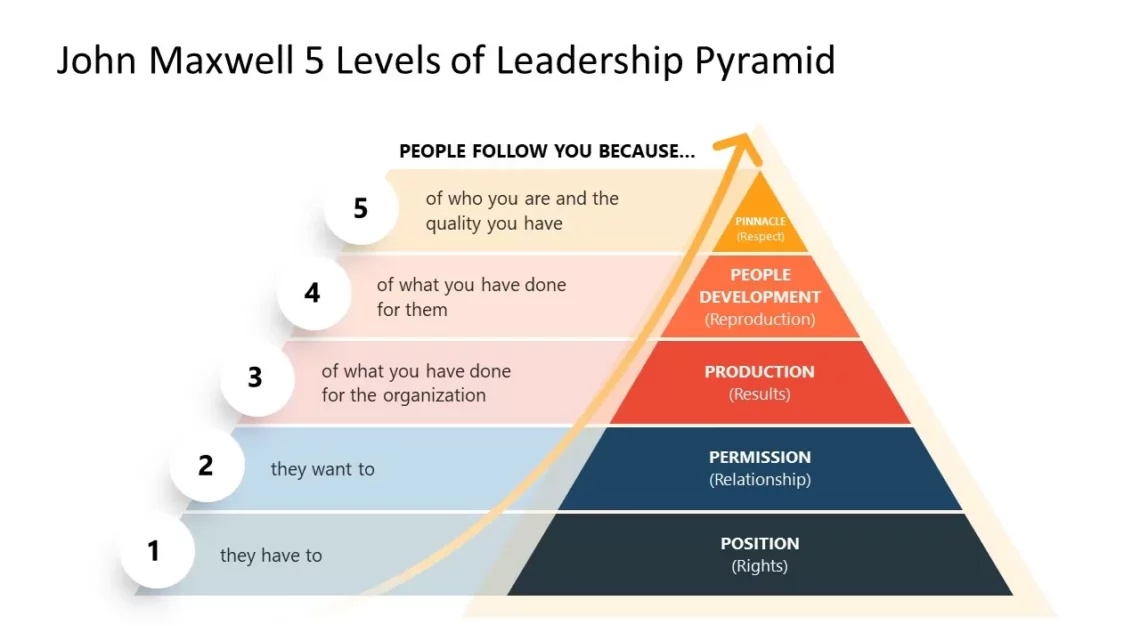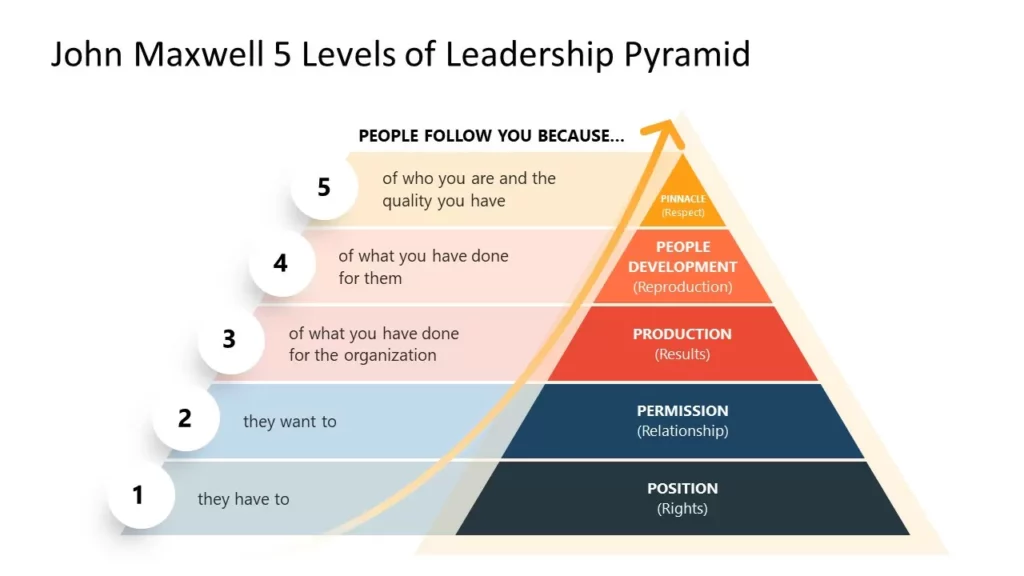
The Levels of Leadership
As life settles into its new cadence, I’ve made a conscious decision to center my blog around my two primary passions: leadership and children, both intricately intertwined with the dynamics of human interaction. It’s all about people.

Back in 2011, I embarked on my managerial journey, immersing myself in the study of management and leadership. Among the multitude of resources I explored, “The 360 Leader” by John Maxwell stands out. Its profound impact not only deepened my comprehension but also succinctly mirrored insights gleaned from my own professional endeavors.
At the heart of effective leadership lies Maxwell’s articulate delineation of the leader’s evolution across five distinct stages:
- Position: Rights – People follow because they have to.
- Permission: Relationship – People follow because they want to.
- Production: Results – People follow because of what you have done for the organization
- People Development: Reproduction – People follow because of what you have done for them
- Personhood: Respect – People follow because of who you are and what you represent.
Let’s delve deeper into these stages, starting with the first one.
For any new manager stepping into the arena, level one is the starting point. While whispers about your capabilities may circulate, from the team’s standpoint, you’re akin to a blank canvas awaiting strokes of perception. Whether you’re a new hire or a promoted insider, this phase presents an opportunity to forge connections with your team members. If you find yourself in the latter category, promotion can sometimes stir up feelings of negativity or jealousy among your colleagues. In such instances, it’s crucial to address these sentiments head-on.
The best tool to address both new hire or promotion situations is to institute regular one-on-one meetings with each team member. Though time-consuming, scheduling these meetings weekly, if feasible, can be immensely beneficial, especially in the early stages of leadership. During these interactions, authenticity is paramount. Being forthright, genuinely supportive, and following through on commitments can lay a solid foundation for trust. Demonstrating a sincere interest in your team members’ welfare and needs fosters a sense of camaraderie and establishes you as a leader invested in their growth and success. These one-on-one meetings are so impactful that they warrant further exploration in a dedicated post. Following this strategy can pave the way to progression to the second level of leadership.




